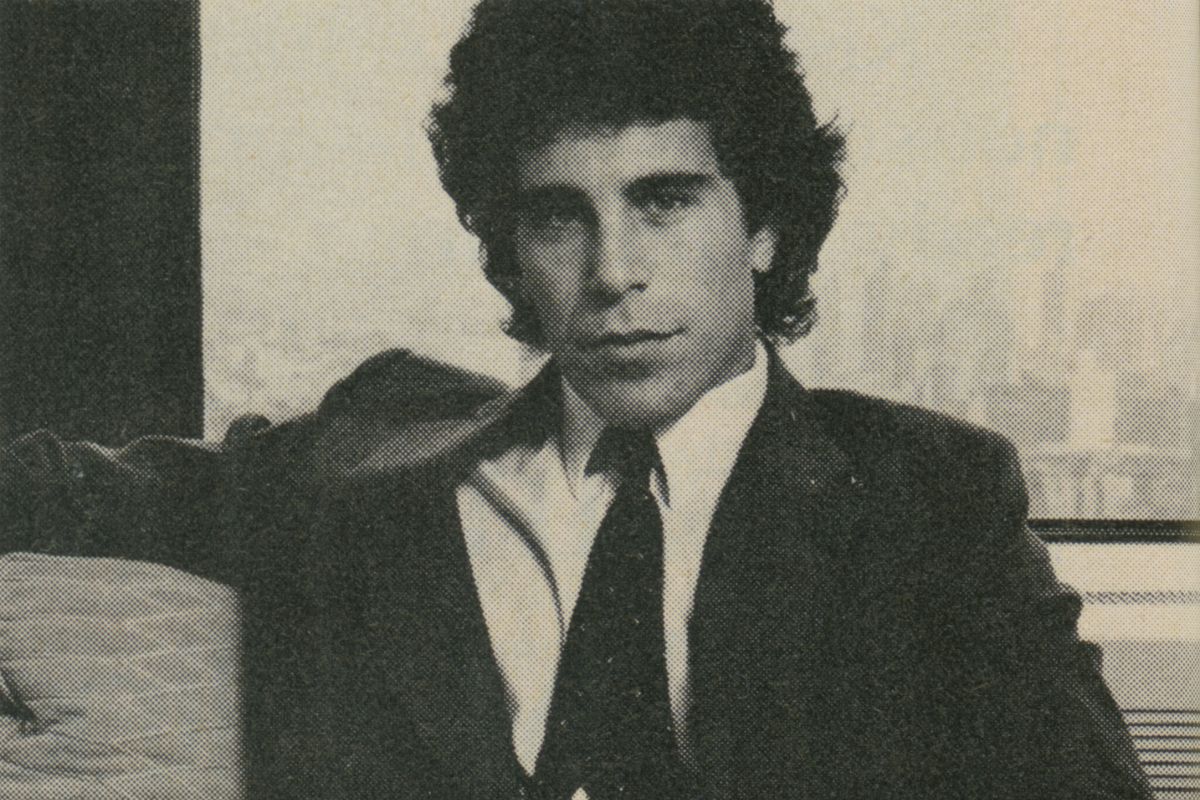Amidst all the parties at the start of the New Year, there was no sign of any optimism or hope for the future on the part of the ruling class and its strategists. On the contrary, as Alan Woods discusses, the columns of the bourgeois press are filled with pessimism and foreboding.
“Out with the Old. In with the New”. That was always the encouraging message of New Year. But amidst all the parties and the popping of champagne bottles, there was no sign of any optimism or hope for the future on the part of the ruling class and its strategists. On the contrary, the columns of the bourgeois press are filled with pessimism and foreboding.
On 28 December the Financial Times published an article by Gideon Rachman with the interesting title: Battered, bruised and jumpy – the whole world is on edge. In it we read the following:
“In 2015, a sense of unease and foreboding seemed to settle on all the world’s major power centres. From Beijing to Washington, Berlin to Brasília, Moscow to Tokyo — governments, media and citizens were jumpy and embattled.
“This kind of globalised anxiety is unusual. For the past 30 years and more, there has been at least one world power that was bullishly optimistic. In the late 1980s the Japanese were still enjoying a decades-long boom — and confidently buying up assets all over the world. In the 1990s America basked in victory in the cold war and a long economic expansion. In the early 2000s the EU was in a buoyant mood, launching a single currency and nearly doubling its membership. And for most of the past decade, the growing political and economic power of China has inspired respect all over the world.
“Yet at the moment all the big players seem uncertain — even fearful. The only partial exception that I came across this year was India, where the business and political elite still seemed buoyed by the reformist zeal of prime minister Narendra Modi.
“By contrast, in Japan, faith is fading that the radical reforms, known as Abenomics, can truly break the country’s cycle of debt and deflation. Japanese anxiety is fed by continuing tensions with China. However, my main impression from a visit to China, early in the year, is that this too is a country that feels much less stable than it did even a couple of years ago. The era when the government effortlessly delivered growth of 8 per cent or more a year is over. Concerns about domestic financial stability are mounting, as the upheavals in the Shanghai stock exchange over the summer revealed.”
New explosions in the Middle East
The New Year opened with high drama, the scene of which was set, as one might have expected, in the seething cauldron of the Middle East, following the execution of, Sheikh Nimr-al-Nimr a prominent Shia Muslim cleric, a persistent critic of Saudi Arabia’s royal family who was involved in anti-government protests that erupted in Saudi Arabia in the period of the Arab Spring, until he was arrested in 2012.
Washington views the situation with a mixture of alarm and helplessness. US state department spokesman John Kirby uttered soothing words: “We will continue to urge leaders across the region to take affirmative steps to calm tensions. We believe that diplomatic engagement and direct conversations remain essential.”
But while Washington preaches sweetness and light, its friends and allies in Riyadh are pouring gallons of petrol onto the flames of what was already a highly explosive region. Kirby’s words resemble a speech delivered by a vegetarian at a cannibals’ annual convention. The only difference is that the man who delivered it is the representative of the most cannibalistic power on earth.
The flames that engulf the entire Middle East are the direct consequence of the criminal invasion of Iraq and the continuing interference of US imperialism in that unhappy region. Having destabilised Iraq and reduced it to a smoking, war-torn ruin, the Americans and their allies have aided and abetted reactionary forces in Syria which now pose a serious threat to their interests. But the so-called “war against terror” that has allegedly been waged by the US and its allies for the past years in Iraq has achieved precisely nothing. The claim of the pathetic and cowardly Iraqi army, which is under US control, to have retaken Ramadi from ISIS, turned out to be a lie.
As I write these lines, the Jihadis remain in control of large parts of that city (or what remains of it) and fighting is still raging. No doubt the Iraqi army will eventually succeed in winning control of a heap of smouldering ruins. But the “triumph” in Ramadi has only served to expose the Iraqi army as a useless instrument. This shameful farce exposes the hollowness of all the boastful claims of the Pentagon, which pays their wages and puts guns in their hands, which they will throw away as soon as the first convenient opportunity presents itself.
America, Russia and Iran
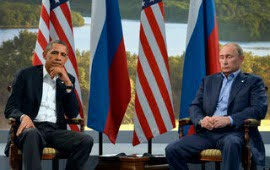 Having finally woken up to the danger posed by forces that have escaped their control, the Americans are desperately looking around for someone who can help them to stamp out the fires that they themselves have ignited. But who can that be? Reluctantly, grumbling under their breath, the Americans are obliged to turn to the most unexpected and unwelcome of all imaginable allies – Russia and Iran.
Having finally woken up to the danger posed by forces that have escaped their control, the Americans are desperately looking around for someone who can help them to stamp out the fires that they themselves have ignited. But who can that be? Reluctantly, grumbling under their breath, the Americans are obliged to turn to the most unexpected and unwelcome of all imaginable allies – Russia and Iran.
Not long ago, the Americans and their NATO allies were constantly repeating the same monotonous chant about “isolating Russia”. Oh yes! “Russia is isolated internationally.” That was the mantra, repeated day in, day out. But now, as if by magic, Russia is not at all isolated, but courted, feted, and showered with praise, albeit delivered in a surly, growling sort of way. “We have no intention of isolating Russia”, “We must reach an understanding with Russia,” they now repeat constantly, and hope that nobody will notice the change of tune.
That was not the only death-defying somersault performed by Washington in the Year of Our Lord 2015. An even more astonishing leap in the diplomatic circus was performed in relation to Iran. The very same Iran which, like Russia, was doomed to the role of an international pariah, which was subjected to punishing sanctions and was even on the point of receiving the amiable attentions of the US air force, has now become a friend of America. And as we all know, a friend in need is a friend indeed!
The reason for these astonishing diplomatic acrobatics is not hard to see. The only serious military actions against the Jihadis in Syria have been the ones carried out by the Russians in collaboration with the Syrian army of Bashar al-Assad. And the only serious military actions against ISIS in Iraq (apart from the Kurds who will only fight in their own areas) are carried out, not by the so-called Iraqi army and its US backers, but by the Iranian-backed Shia militia and elements of the Iranian military.
In practice, the Americans have been forced to recognise this and accept the demands of Russia and Iran that Bashar al-Assad must remain in power for the foreseeable future. A report in the London Review of Books by the prominent American investigative journalist Seymour Hersh states that, “the American Joint Military Staff provided the Syrian Army with security information through Germany, Russia and Israel”.
This fits in with the statements made by former Director of the American ‘Defence Intelligence Agency’ (DIA), Michael Flynn, who told the same magazine that between 2012 and 2014 his agency sent a number of messages warning of the impact of overthrowing Assad’s regime. His agency began to provide the regime with intelligence information (without, it seems, the approval of the politicians) to further its war against “common enemies”.
The Americans and their allies are being compelled by force of circumstance to abandon the ridiculous fiction of a “moderate Islamist opposition” in Syria. This “moderate opposition,” as everyone now knows, is made up of extreme Jihadi outfits like the Al Nusra Front, which America had supported, and which is the Syrian branch of al Qaeda. One part of US imperialism (the CIA) wishes to continue this policy, but it is directly contradicted by the Administration’s change of line in relation to Russia and Iran. Meanwhile, the Russians continue to bomb all the Jihadi forces to their heart’s content, paying not the slightest attention to the howls of protests from Washington.
Saudis and Turks
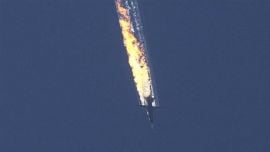 These splits in Washington create an impression of confusion and indecision, which is personified in the person of President Obama. There can be no doubt whatsoever that the downing of a Russian plane by the Turks was a deliberate provocation on the part of Erdogan, the intention of which was to drive a wedge between America and Russia. As we predicted, this manoeuvre failed utterly.
These splits in Washington create an impression of confusion and indecision, which is personified in the person of President Obama. There can be no doubt whatsoever that the downing of a Russian plane by the Turks was a deliberate provocation on the part of Erdogan, the intention of which was to drive a wedge between America and Russia. As we predicted, this manoeuvre failed utterly.
The execution of Nimr-al-Nimr, a judicial murder ordered by the Saudi royal clique, is of the same order. It was a deliberate provocation intended to stir up sectarian strife between Shias and Sunnis and push the government of Teheran into taking military action against Saudi Arabia, which would then call on the Americans for aid.
The immediate reaction to what was clearly a judicial murder was the storming of the Saudi embassy in Tehran. Saudi Arabia immediately broke off diplomatic ties with Iran. All this was carefully premeditated. Events have proceeded step by step, like the steps of a ballet dancer. But this ballet is the dance of death. This was a desperate act by a regime that finds itself in deep trouble and faces the prospect of overthrow.
The Saudi gangsters miscalculated in Yemen, where they are involved in an unwinnable war. Now it has stirred up the anger of the Shias who constitute at least twenty percent of the Saudi population and are among the poorest and most oppressed layers. Mass demonstrations have broken out in Saudi cities with slogans like “Death to the House of Saud!” By overreaching themselves the Saudi ruling clique has sown the winds and will reap a whirlwind.
Refugee crisis
The revisionist pseudo-Marxist Hobsbawm, echoing an idea that was far better expressed by Kautsky, argued that in an age of globalization, national barriers would cease to have any meaning and wars would be a thing of the past. Instead of this, the 21st century has been marked by endless wars, violence and national conflicts of every kind. The Middle East is only one example of this.
The bloody chaos in Syria is causing a massive displacement of people probably not seen since the end of the Second World War. Thousands upon thousands of cold, exhausted, hungry refugees beat with their bare fists against the barbed wire fences that were hastily erected by the forces of law and order of civilized Europe. Nothing can illustrate the cold, cynical hypocrisy of the European bourgeois than their reaction to the refugee crisis.
For many years the people of Europe and America were fed the lie that every act of imperialist aggression was motivated by the purest humanitarian concerns. These “concerns” have created the biggest humanitarian disaster since the Second World War. Having contributed in no small way to the mess in Syria, the governments of Europe are now busy working out the best way to close the door on the hapless victims of the war.
The situation is no better on the other side of the Atlantic. A hundred years ago America inscribed on its Statue of Liberty the famous words:
“Give me your tired, your poor,
Your huddled masses yearning to breathe free,
The wretched refuse of your teeming shore.
Send these, the homeless, tempest-tossed, to me:
I lift my lamp beside the golden door.”
Now these words sound like a cruel irony. That same America is erecting ever higher fences to keep the poor huddled masses on the other side of the Rio Grande. The leading Presidential contender for the Republican Party publicly calls for a ban on all Moslems wishing to enter the United States. This is the authentic voice of 21st century capitalism: the voice of overt reaction, of chauvinism, xenophobia and barely-concealed racism.
Instead of the revisionist Utopia of a world without frontiers, national barriers are being reinforced everywhere. Border controls are being reintroduced not only on the outer fringes of Europe but also between the member countries of the Schengen Agreement. Nice, democratic Sweden is now introducing checks on travellers coming from nice, democratic Denmark. Nothing is left of the dream of a united Europe, which was always impossible on a capitalist basis.
Europe in crisis
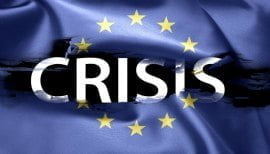 The mood in Europe is a sombre one. The year 2015 was scarred both in its beginning and its end by two bloody terrorist attacks in Paris. The citizens of Munich and Brussels could not even celebrate the New Year in the accustomed style for fear of new terrorist outrages. In Paris the firework display had to be suspended. Fear and uncertainty are everywhere.
The mood in Europe is a sombre one. The year 2015 was scarred both in its beginning and its end by two bloody terrorist attacks in Paris. The citizens of Munich and Brussels could not even celebrate the New Year in the accustomed style for fear of new terrorist outrages. In Paris the firework display had to be suspended. Fear and uncertainty are everywhere.
All the serious economists expect that the global economy is due another slump, which may start in Asia as a result of the sharp deceleration of the mighty Chinese economy. But it could equally begin in Europe. Germany, formerly the locomotive of Europe’s economic growth, has stalled and was plunged into crisis by the arrival of more than a million refugees from the Middle East and other war zones.
The Euro, which, together with the Schengen Agreement, was supposed to be the basis for further economic integration, has turned into its opposite. A yawning abyss has opened up between Germany and the nations of southern Europe, while the refugee crisis has driven a wedge between it and countries to the east. The long agony of Greece will continue, since nothing whatsoever has been solved. The exit of Greece from the Euro is only a matter of time.
That in turn will be the cause of even greater pain and suffering for the Greek people, and can act as the detonator that will push other countries towards the door marked exit. Britain is holding a referendum that could end in the United Kingdom leaving the EU. Anti-EU sentiment is building up in France and other countries. The future, not just of the Euro but of the EU itself is in question.
Political ferment
The pessimism of the bourgeois is well-founded. But it is only one side of the coin. The crisis of capitalism inevitably begets its opposite: the birth of a new spirit of revolt that alone can provide humanity with hope for the future. Slowly but surely the consciousness of the masses is awakening. And if the green shoots of economic recovery are only a figment of the imagination of the economists, the first symptoms of a revival of a revolutionary mood are both real and tangible.
It is an elementary proposition of dialectical materialism that human consciousness always lags behind events. But sooner or later it catches up with a bang. That is precisely what a revolution is. And what we are witnessing in Britain is the beginning of a political revolution. Overnight the entire equation has been transformed. That itself is a symptom of profound changes that are taking place in society. Sharp turns and sudden changes are implicit in the present situation.
It is true that consciousness is shaped to a large extent by the memories of the past. It will take time for the old illusions in reformism to be burned out of the consciousness of the masses. But under the hammer blows of events there will be sudden and sharp changes in consciousness. Woe betide those who try to base themselves on the consciousness of a past that is already vanished beyond recall! Marxists must base themselves on the living process and on perspectives for the coming period, which will bear no similarity to what we have experienced heretofore.
Looking for a way out of the crisis, the masses put to the test one party after another. The old leaders and programmes are analysed and discarded. Those parties that are elected and betray the hopes of the people, carrying out cuts in violation of election promises find themselves rapidly discredited. What were considered as mainstream ideologies become despised. Leaders who were popular become hated. Sharp and sudden changes are on the order of the day.
There is a growing anger against political elites: against the rich, the powerful and the privileged. This reaction against the status quo, which contains the embryonic seeds of revolutionary developments, can last well beyond the point where the economy begins to register signs of improvement. People no longer believe what the politicians say or promise. There is a growing disillusionment with the political establishment and in political parties in general. There is a general and deep seated sense of economic malaise in society. But it lacks a vehicle that is capable of giving it an organized expression.
In France, where the Socialist Party swept the board in the last election, Francois Hollande has the lowest approval rate of any President since 1958. In Greece we saw the collapse of Pasok and the rise of Syriza. In Spain we have the rise of Podemos, which came from nowhere to win – together with its allies – 69 seats in the Spanish parliament, establishing itself as the only real opposition party.
We see the same process taking place in Ireland in the recent referendum. For centuries, Ireland was one of the most Catholic countries in Europe. Not long ago, the Church held absolute dominion over every aspect of life. The result of the referendum on gay marriage, where 62% voted Yes, was a stunning blow to the Roman Catholic Church. It was a massive protest against its power and interference in politics and in people’s lives. This represented a fundamental change in Irish society.
In Britain, against all the odds, Jeremy Corbyn swept the board in the elections for Labour leader. This was a political earthquake that transformed the whole situation in Britain practically overnight. This development was anticipated by events in Scotland, where the revolt against the establishment was reflected in the rapid growth of the SNP. This was not a movement to the right but to the left. It was not the expression of nationalism but of a burning hatred of the effete elite that rules in Westminster. The Labour Party, as a result of the cowardly class collaborationist policies of its leaders, is seen as just part of that establishment.
For decades the Labour Party under right wing leadership was a pillar of support for the existing system. The ruling class will not abandon this without a ferocious struggle. The first line of defence of the capitalist system is the Parliamentary Labour Party (PLP) itself. The Blairite majority of the PLP are the direct and conscious agents of the bankers and capitalists in this struggle. That explains their fanatical determination to get rid of Jeremy Corbyn at all costs. The ground is being prepared for a split in the Labour Party that will create an entirely new situation in Britain. All this is an expression of the deep discontent that exists in society and is seeking a political expression. Across Europe there is a fear that the policies of austerity will not be a temporary adjustment but a permanent attack on living standards. In countries such as Greece, Portugal and Ireland these policies have already resulted in deep cuts in nominal wages and pensions without having solved the problem of the deficit. Thus, all the sufferings and privations of the people have been in vain. Everywhere the poor are poorer and the rich are richer.
These processes are not confined to Europe. The US Presidential election presents a most interesting development. It is, of course, impossible to predict the outcome with any degree of certainty, given the extremely unstable and volatile juncture of US politics. The media circus has focussed almost exclusively on the person of the Republican Donald Trump. It seems unlikely that the US ruling class would entrust its affairs to an ignorant clown. But they have done so on at least two occasions in the recent past. Hilary Clinton is surely a safer bet from the standpoint of the ruling class.
But far more significant than Trump or Clinton was the massive support for Bernie Sanders who openly speaks of socialism. The emergence of Bernie Sanders as a challenger for the Democratic nomination for presidential candidate is a symptom of profound discontent and ferment in society. His attacks against the billionaire class and his call for a “political revolution” resonate with millions of people, as tens of thousands attend his rallies.
The word “socialism” is now used more frequently in the mainstream media. A 2011 poll found that 49% of those aged 18 to 29 had a positive view of socialism, versus only 47% with a positive view of capitalism. A more recent poll, from June 2014, found that 47% of Americans would vote for a socialist, with 69% of those under 30 in favour.
Large numbers of people, many of them youth, were eager to hear Bernie Sanders’ message. It is true that this was more akin to Scandinavian-style Social Democracy than genuine socialism. Even so, this is a most significant symptom that something is changing in the USA.
The situation in Russia has marked differences to the rest of Europe. On the surface it may seem paradoxical that Putin has emerged strengthened from the crises in Ukraine and Syria. The efforts of the West to isolate him have been a miserable failure. In Syria he is the man who now calls the shots. And even if the USA persists in maintaining sanctions over Crimea and Ukraine, we can confidently predict that its European allies will quietly drop theirs. The crisis-ridden European economy needs the Russian market and Russian gas just as much as the European bourgeois need Russian help to clear up the mess in Syria and (god willing) halt the unending flow of refugees.
But if we look deeper into the situation, it will become evident that that it is not so stable as it looks. The Russian economy continues to fall, hit by the falling price of oil and western sanctions. Real wages are falling. The middle class can no longer spend pleasant weekends in London and Paris. It grumbles but does nothing. The Russian workers were influenced by the official propaganda on Ukraine. They were scandalised by the activities of the Ukrainian fascists and ultra-nationalists and Putin was able to take advantage of their natural sympathy with their brothers and sisters in eastern Ukraine.
Putin may be able to maintain his grip on power for some time, but everything has its limits and in the end history always presents its bill. The economic crisis has led to a sharp fall in living standards of many workers, especially outside Petersburg and Moscow. The masses are patient, but their patience has definite limits. We saw evidence of this at the end of 2015 when long-distance truckers went on strike. A small symptom perhaps, but a symptom nevertheless that sooner or later the discontent of the Russian workers will find its expression in serious protests.
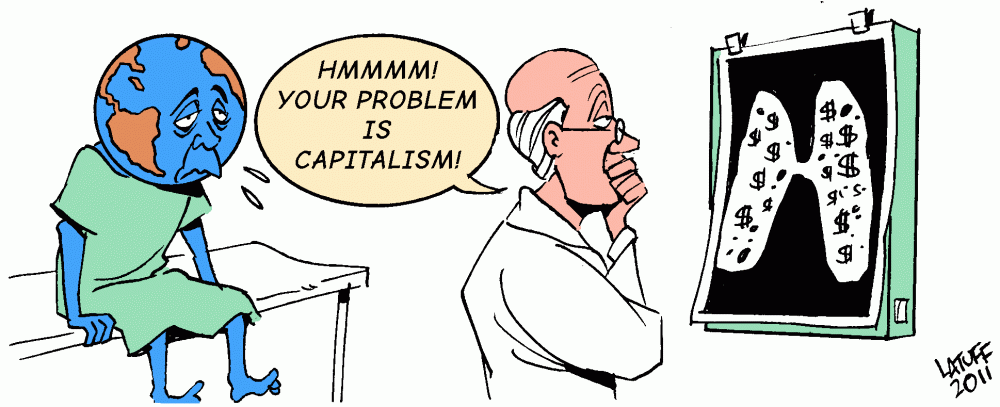
Gloomy outlook
At bottom, all these phenomena reflect the fact that the capitalist system has reached its limits. Globalization, having exhausted itself, has turned into its opposite. From being a powerful factor propelling growth, it is now helping to drag the whole unsound edifice down. The fact is that the so-called revival – which is no revival at all – is of such a feeble and anaemic character that any shock, whether economic, political or military, will be sufficient to bring the whole recovery to a shuddering halt.
The slowing of the Chinese economy threatens the entire world. China imported huge quantities of commodities from countries like Brazil. Now the Brazilian economy is contracting by 4.5 per cent. Many other so-called BRICS are in a similar position. The predictions of the spokespersons of Capital are increasingly pessimistic about the future. The Wall Street Journal reported the words of Adam Parker, Morgan Stanley’s chief U.S. stock strategist: “We think that we are likely headed for a choppy year of low returns, and suspect many others think the same”.
Hyundai Motor’s top executive has said the outlook for this year was “not bright”. Group chairman Chung Mong-koo told the heads of the automaker’s overseas units growth in 2015 was constrained by a weak global economy, the economic slowdown in the world’s second-largest auto market China and a decline in emerging market demand. “Considering many leading indicators, the outlook for next year’s auto market is also not bright,” he said. Similar examples can be repeated at will.
In the article we mentioned at the beginning, Gideon Rachman draws the most pessimistic conclusions:
“The global gloom makes the international political system feel like a patient that is still struggling to recover from a severe illness which began with the financial crisis of 2008. If there are no further bad shocks, recovery should proceed gradually and the worst political symptoms may fade. The patient is vulnerable, however. Another severe shock, such as a major terrorist attack or a serious economic downturn, could spell real trouble”.
Here is the real voice of the strategists of Capital. They look to the future with dread. And from their own class perspective they are not wrong. 2016 will produce more turbulence, economic crisis and attacks on living standards, more inequality and injustice, more bloodshed and mayhem.
The New Year will replicate the Old, but with even greater intensity. The wars in the Middle East, Africa and Asia will produce the same tsunami of human misery that will continue to stream towards Europe, where it will be met by a barrier of barbed wire and inhumanity.
Terrorism, which is spreading through the globe like an uncontrollable epidemic, is itself a symptom of the diseased nature of capitalism in the 21st century. Further acts of terrorism are inevitable. The terrorists cannot be halted by police methods. There are not enough policemen in the world to deal with a large number of determined and fanatical individuals who wish to perpetrate acts of murder against unarmed and defenceless civilians.
When Lenin wrote that capitalism is horror without end, he was speaking the truth. It is as useless to complain about these horrors as it is to complain about the pains that accompany childbirth. The task of Marxists is not to moan about the inevitable consequences of capitalist decay. We leave that kind of thing to the preachers and pacifists.
Our task is to work tirelessly to point out to the workers and youth the real causes of these horrors and explain the way in which the problem can be eradicated once and for all. That can only be achieved by a root-and-branch transformation of society. Drastic problems demand drastic solutions. Only the socialist revolution can solve the problems facing humanity. That is the only cause worth fighting for today.




